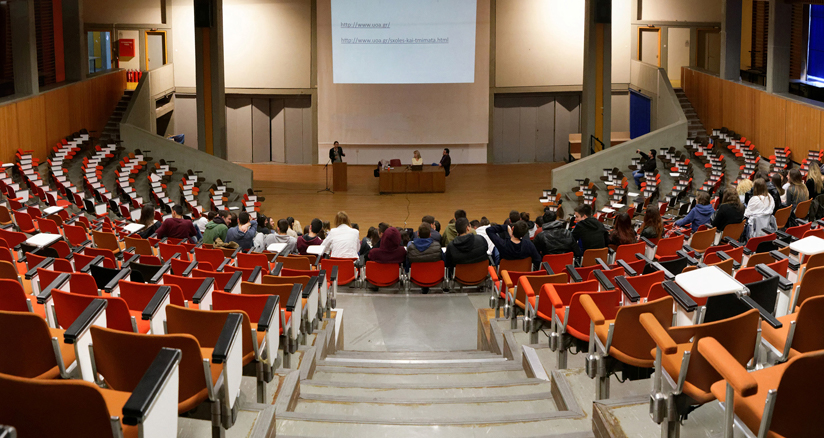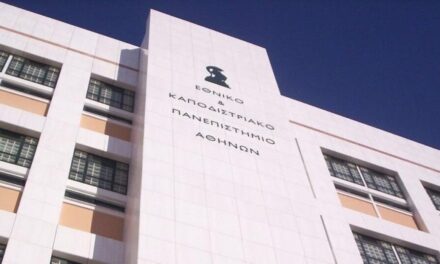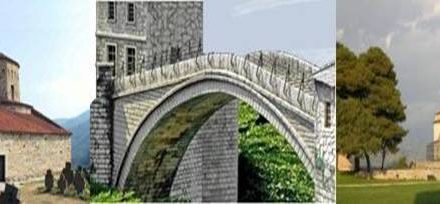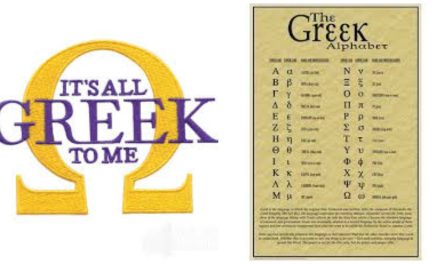The web portal Study in Greece is campaigning for the promotion and international visibility of Greek Universities and the comparative educational advantages of our country. In particular, the campaign focuses on the foreign language study programmes that Greek Universities offer to Greek and international students. The initiative is supported by the General Secretariat of Higher Education of the Ministry of Education and Religious Affairs and the General Secretariat for Greeks Abroad and Public Diplomacy of the Ministry for Foreign Affairs. In this context, a number of educational programmes and actions are presented in detail on a regular basis, such as undergraduate and postgraduate programmes, summer schools etc, to inform international students about the many foreign language options offered by Greek Universities.
Study in Greece interviewed Professor Maria Sidiropoulou of the Department of English Language and Literature, Chair of the Interdepartmental MA Programme (IMAP) Translation: Greek, English, Russian of the National and Kapodistrian University of Athens (NKUA), on the programme’s content and what it has to offer to international students.
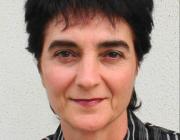 Maria Sidiropoulou is Professor of Translation Studies at the Department of English Language and Literature, School of Philosophy, National and Kapodistrian University of Athens. She was president of the Interuniversity and Interdepartmental Co-ordinating Committee of the Translation-Translatology MA Programme of the National and Kapodistrian University of Athens, in 2009-2011 and director of the Language and Linguistics Division of the Department of English in 2004-2006. She has taught in two postgraduate programmes. Her recent publications (books, co-/edited volumes, articles) deal with intercultural issues manifested through translation in the press, in advertising, in EU documentation, in literature, in academic discourse, on stage and screen. She is a founding member of the META-FRASEIS/ΜΕΤΑ-ΦΡΑΣΕΙΣ translation Programme.
Maria Sidiropoulou is Professor of Translation Studies at the Department of English Language and Literature, School of Philosophy, National and Kapodistrian University of Athens. She was president of the Interuniversity and Interdepartmental Co-ordinating Committee of the Translation-Translatology MA Programme of the National and Kapodistrian University of Athens, in 2009-2011 and director of the Language and Linguistics Division of the Department of English in 2004-2006. She has taught in two postgraduate programmes. Her recent publications (books, co-/edited volumes, articles) deal with intercultural issues manifested through translation in the press, in advertising, in EU documentation, in literature, in academic discourse, on stage and screen. She is a founding member of the META-FRASEIS/ΜΕΤΑ-ΦΡΑΣΕΙΣ translation Programme.
Please tell us about the features of the Interdepartmental MA in “Translation: Greek, English, Russian” and its goals.
The Interdepartmental MA Programme (IMAP) “Translation: Greek, English, Russian” aims at training postgraduate students in language transfer between Greek, English and Russian, considering the special features of the three language systems, as well as the interaction of cultures, as manifested through translating various genres.
It allows Greek, a less widely spoken language, to interlinguistically and interculturally interact with two widely-spoken languages (like English and Russian) at an academic level.
The IMAP (ΔΠΜΣ) aims at utilising the undergraduate background which the collaborating departments offer, in order to broaden the cross-linguistic perspective of students towards languages and cultures which the collaborating departments do not offer in their undergraduate programmes, thus (a) creating more qualified translators and (b) developing the intercultural perspective of the departments, in the field of intercultural studies.
It addresses postgraduate students who have excellent grasp of all three languages, Greek, English and Russian, and further advances the study of language transfer techniques in translation practice.
The IMAP administration is run by a Steering Committee, authorised by a Special Interdepartmental Committee (SIC/ΕΔΕ). The programme grants a Master of Arts (MA) Degree in “Translation: Greek, English and Russian”. The Department of English Language and Literature runs the secretarial support of the Programme.
It extends over three academic semesters and the Degree is administered following a successful completion of the Programme.
Below is the Programme’s scientific profile through its content of studies. The Programme advances by adapting to the experience of instructors and students. The SIC/ΕΔΕ is responsible for constantly evaluating and overall assessing the IMAP during and after its 3-semester course.
Although the aim is to develop translational competence between Greek, English and Russian, translation and interpreting studies open up intercultural perspectives, which the IMAP wishes to investigate.
It uses the theoretical apparatus of linguistics to trace the socio-cultural identity of the three languages, cognitive processes in translation and interpreting, translational perspectives which gained momentum in certain periods, etc.
The scientific make-up of the programme manifests itself in its content of studies.
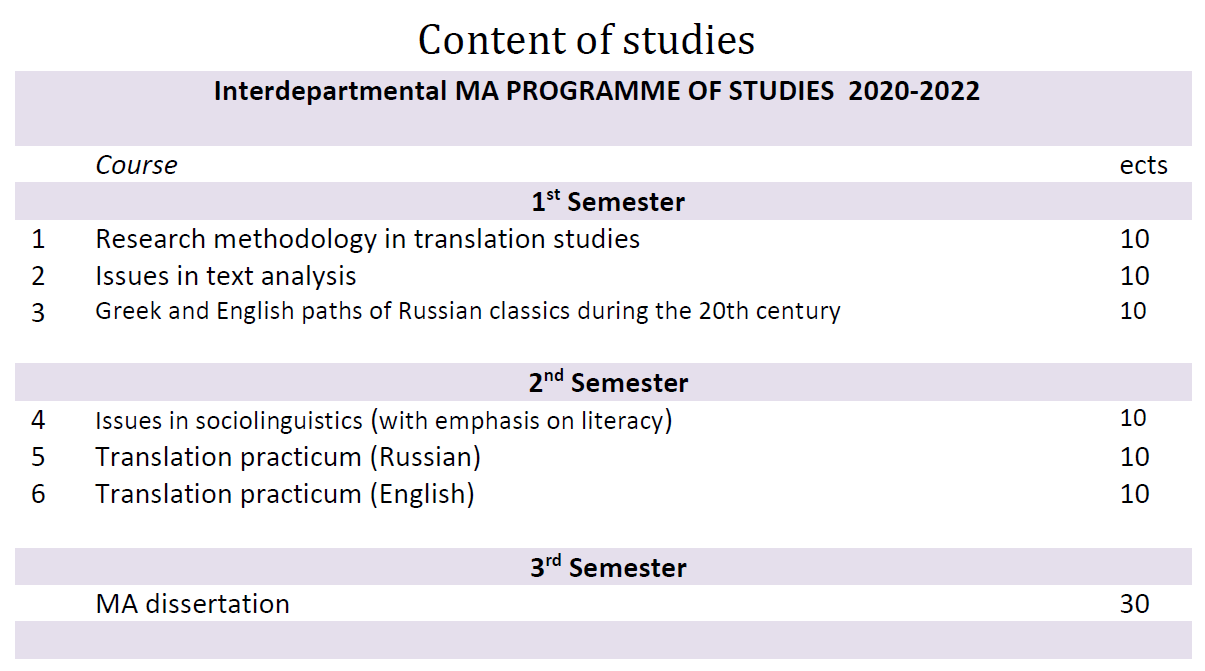 For more information, you can read the Interdepartmental Programme’s Study Guide (in Greek).
For more information, you can read the Interdepartmental Programme’s Study Guide (in Greek).
Given that the Master’s courses are taught in all three languages, would you like to tell us why this Master is addressed to international students?
You are right. The courses of the Interdepartmental Programme are taught in all three languages. The Department of Philology runs its courses in Greek, the Department of English Language and Literature runs its courses in English, and the Department Russian Language and Literature and Slavic Studies, in Russian. The Programme aims at attracting international students for the intercultural awareness they bring in, and which they can further develop through its course. They need an acute awareness of intercultural variation because it is an asset for translators, it is the resource of their expertise.
What is the basis of this postgraduate programme, so that students can achieve an academic career later? Which are its benefits in general?
Intercultural variation is in itself an academic area of expertise and may be fruitfully researched in tertiary education.
As suggested, the Programme focuses on interlingual variation in intercultural transfer, which has a wide scope of application, as for instance in second language education, but is also crucial as a resource for understanding how translational strategies operate in various genres and time periods.
 IMAP postgraduates participated in the online postgraduate symposium Translation, Education and Pragmatics (Feb. 2021, language: English), co-organised during the pandemic by two Italian and two Greek universities: the Universities of Bari, Salento, Aristotle and NKUA (photo courtesy of the participants).
IMAP postgraduates participated in the online postgraduate symposium Translation, Education and Pragmatics (Feb. 2021, language: English), co-organised during the pandemic by two Italian and two Greek universities: the Universities of Bari, Salento, Aristotle and NKUA (photo courtesy of the participants).
Are you satisfied with the number of foreign students you have attracted? Are efforts being made to make the postgraduate programmes more appealing to international students?
The Interdepartmental MA Programme runs for the first time in the 2020-2022 period. Its overall assessment in the spring of 2023 will show how much it has achieved, but, yes, the Programme is interested in attracting students who have an excellent grasp of all three languages.
The Programme has made attempts at internationalising its input, in terms of inviting external speakers and collaborators who may be offering lectures or seminars in all three languages.
In addition, the collaborating Departments at NKUA integrate the IMAP in their programmes of activities and seminars, so the IMAP has the potential to benefit from the activities of all three collaborating Departments.
You can find out more about the 2020-2021 lectures and seminars here.
Poster for the online postgraduate symposium Translation, Education and Pragmatics (Feb. 2021, language: English)
In what ways do you think that Greece can make progress in the sector of international cooperation and the promotion of its universities in order to improve both the economy and the country’s educational profile?
We are all learning through the process of setting up shared educational goals. Collaboration with other universities and organisations can broaden perspectives, we can benefit from others’ strong points and improve ours.
Although the Programme does not require tuition fees, we believe it does contribute to the economy and it advances the educational profile of the country, by encouraging multilingualism, which is a feature of today’s societies, and facilitating intercultural communication, beyond the binary of “local language vs. English language” and beyond the European border. Trilinguals, like the students the Programme attracts, have an enhanced potential in developing intercultural awareness and the Programme makes use of this potential to improve understanding of translation mechanisms.
Tell us a few words about NKUA (EKPA) which is the oldest and largest university in Greece, with important and pioneering work in these almost two centuries.
We highly appreciate the effort NKUA has made in internationalising its MA Programmes. We believe the upcoming bicentennial of NKUA will face a highly improved version of the Institution in the Humanities.
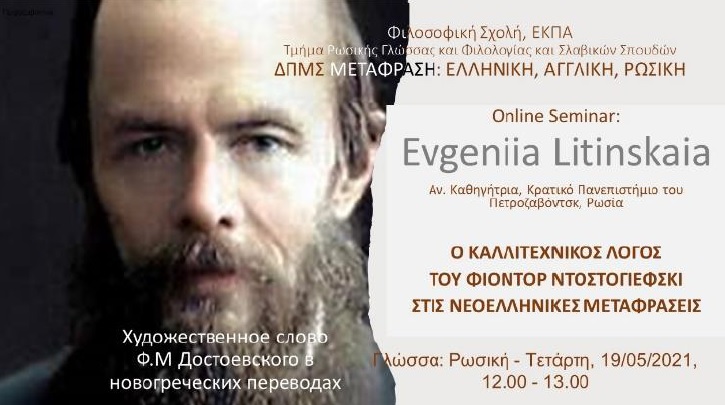 One of the seminars delivered in Russian, in May 2021
One of the seminars delivered in Russian, in May 2021
N.M.

